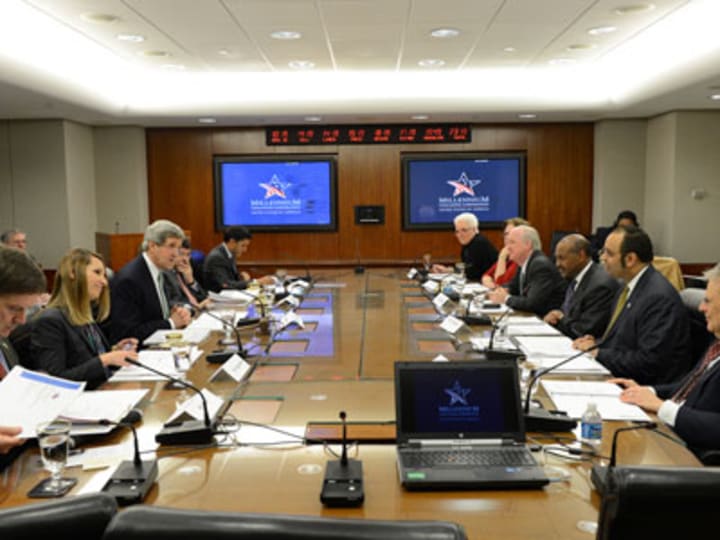
At the quarterly Millennium Challenge Corp. town hall meeting in Washington, D.C., held Monday, representatives of partner countries seemed particularly keen on two things: first, the impact of the U.S. budget cut due to the sequester on future partnerships with MCC, and second, ways of keeping the development funds flowing in line with MCC programs’ requirements.
Zambia’s most senior trade representative in Washington D.C., Inonge Limbalambala, told Devex at the meeting that MCC had already indicated to the government that ongoing compact programs, such as the one Zambia currently has, would not be affected — a point that Steve Kaufmann, chief of staff at MCC also made. However as already reported, several countries reselected for the compact program will be affected, though the specific distribution of the $46 million cut is still unknown.
“We will not know the exact funding levels for each country selected for the compact program, until we finish the necessary compact development processes,” said Kaufmann.
Despite the MCC board maintaining its policy guidelines when it met last week — save for minor wording edits on its termination and suspension policy — qualifying for MCC grants, especially the compacts, is set to get harder with time. This is according to David Baxter, director at the Institute for Public-Private Partnerships.
“Competition is getting stiffer as more countries understand the requirements of MCC and ways of strengthening their performance on its policy indicators,” said Baxter, who advises various governments around the world on public-private partnerships. “The strict fiscal environment in Washington tightens it even further.”
The policy indicators he referred to are a group of 24 indicators used by MCC to determine the eligibility of a country to enter into a compact, the flagship grant provided by the U.S. government corporation. For countries to qualify they have to perform above the median in relation to its income level peers.
“Countries that qualify for compacts as low-income countries, face steeper competition for the funds once their income levels grow to low-middle-income countries; Honduras is an example,” said Thomas Kelly, managing director at MCC’s policy and evaluation department.
Honduras, which signed its compact as a low-income country in 2005, is now classified as a low-middle-income country, since its annual income per capita is more than $1,900. Coupled with a poor governance track record in the course of its compact program, Honduras now only qualifies for the threshold program, the latest of which was approved by the MCC board last week.
Of note to aspiring candidates for future compacts who spoke to Devex after the meeting was a trend pointed out by Stephen Gaull, director of MCC’s compact operations department: the fact that three of the last four compacts have featured water.
One of those projects was in Jordan, which received a grant approval of $93 million last year as part of the $223 million needed for the expansion of the As Samra wastewater treatment plant. With the rest of the funding coming mainly from the private sector, this is MCC’s first major build-operate-transfer project and probably a sign of things to come. However, Gaull also noted that for partner countries to qualify for such public-private partnerships, the project in question not only has to make sense, but also guarantee a stable revenue stream. In addition, they would have to meet tough qualifications in the capacity of both the public and private sectors to undertake such a project.
Read more development aid news online, and subscribe to The Development Newswire to receive top international development headlines from the world’s leading donors, news sources and opinion leaders — emailed to you FREE every business day.




